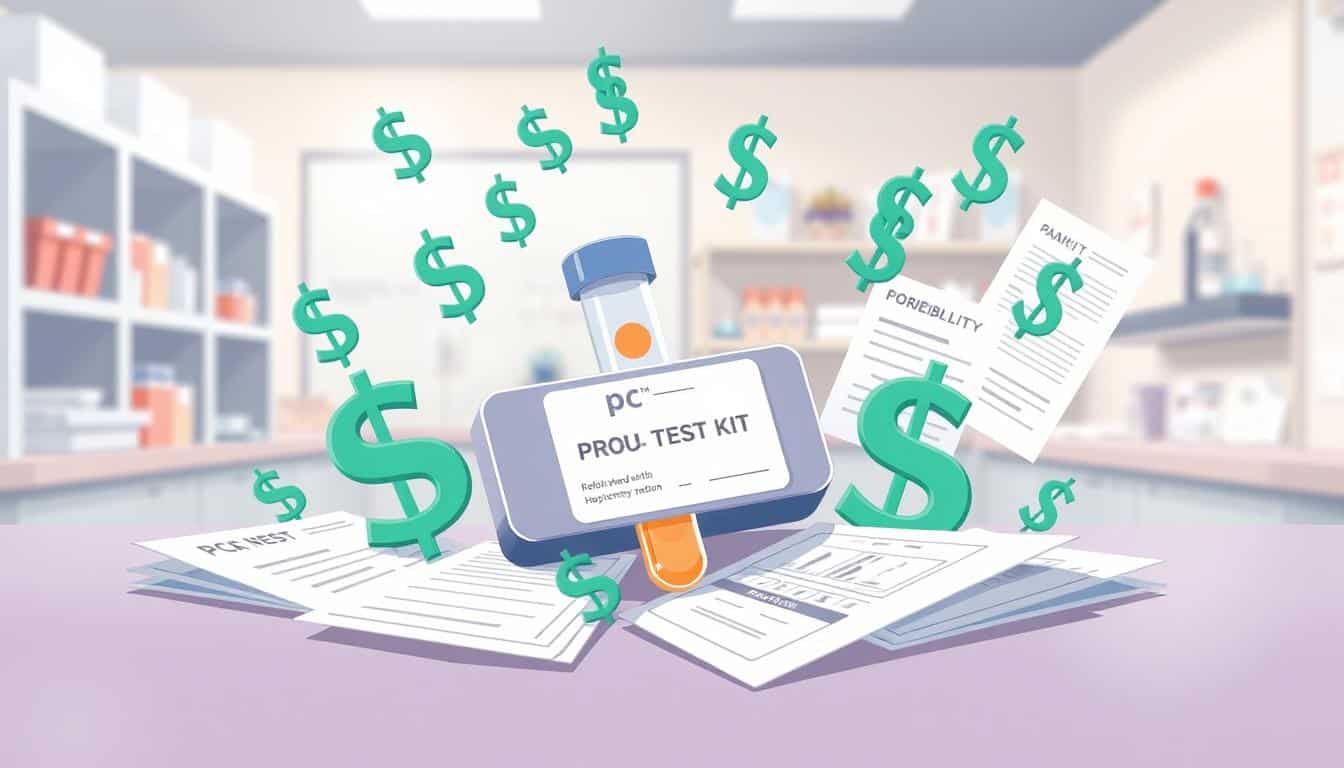The world is still dealing with the COVID-19 pandemic’s effects. This has made understanding tax deductions for medical expenses more crucial. You might wonder, “Are PCR tests tax deductible?” This article will help clarify the rules for tax deductions, especially for COVID-19 tests and taxes.
The IRS has clear guidelines on what counts as a medical expense, especially now. Whether you’re using at-home COVID-19 tests or lab tests, knowing the rules can save you money at tax time. So, let’s explore if your PCR tests can reduce your tax burden!
Key Takeaways
- Understanding what qualifies as a medical expense is crucial for tax deductions.
- Eligibility for PCR tests as tax-deductible expenses may depend on specific circumstances.
- Documenting your expenses effectively is essential to claiming deductions successfully.
- COVID-19 tests may remain relevant for tax deductions due to ongoing health concerns.
- Medicare continues to cover lab tests and vaccines, impacting potential deductions.
Understanding Tax-Deductible Medical Expenses
Understanding tax-deductible medical expenses can seem like solving a puzzle. To get the most out of your deductions, knowing what counts as a medical expense is key. The IRS offers clear guidelines on what expenses you can claim, helping you save money.
What Qualifies as a Medical Expense?
The IRS says many expenses qualify, including:
- Fees for medical services, such as doctor’s visits
- Prescription medications
- Deductible travel costs for medical care
- COVID-19 related expenses, including tests and protective equipment
To deduct these expenses, your total medical and dental costs must be more than 7.5% of your income. Once you hit this mark, every eligible dollar can help lower your taxes.
IRS Guidelines on Medical Expense Deductions
The IRS explains what counts as a medical expense in Publication 502. Home COVID-19 tests are now an eligible expense under certain tax accounts. Always check for updates on COVID-19 testing expenses, as rules can change.
Are PCR Tests Tax Deductible?
Figuring out if PCR tests are tax deductible requires a close look at when you bought them. Good news is that if you itemize your medical expenses, PCR tests might be deductible. Here’s what you need to know about who can get these deductions and how at-home COVID-19 tests fit in.
Eligibility for Tax Deductions on PCR Tests
If you do a lot of testing, knowing PCR tests can be tax-deductible is helpful. You qualify if your medical expenses are more than 7.5% of your adjusted gross income. Eligible costs include:
- Costs for PCR tests needed for work or health reasons.
- Expenses for tests bought to meet travel rules.
But, remember, personal or family test costs don’t count. So, it’s important to keep detailed records of your purchases.
Home Testing Kits and Health Accounts
DIY testing has brought COVID-19 home test kits into the picture. These are now seen as reimbursable medical expenses. You can use health flexible spending accounts (FSAs) or Health Savings Accounts (HSAs) to pay for them. This makes testing easier, helping people manage their health without extra money worries. Accepted expenses include:
- COVID-19 home tests that meet the rules.
- Medical costs claimed from July 1, 2021, on.
By tracking your expenses and understanding how PCR tests and home kits affect your money, smart taxpayers can get the most deductions. This helps them deal with medical costs better.
How to Claim Your PCR Test Expenses
Claiming PCR test expenses might seem hard, but it’s doable with the right steps. It’s key to document your medical expenses for taxes well. Make sure you have all receipts and invoices ready for your tax return. This will help you get the most deductions possible.
Documenting Your Expenses for Tax Purposes
To document your PCR test expenses well, keep a detailed record of all related transactions. This includes:
- Receipts for PCR tests purchased
- Invoices from testing facilities
- Proof of payment, such as bank statements
If your medical expenses are more than 7.5% of your adjusted gross income (AGI), you might get tax benefits. Some states have lower thresholds, offering more chances to deduct expenses on state tax returns. Always itemize deductions using Schedule A when filing your taxes.
Using Flexible Spending Accounts for PCR Tests
Thinking about using FSAs for PCR testing? It’s a wise choice. FSAs let you pay for medical expenses with pre-tax dollars, saving you money. For instance, using FSA funds for a $50 rapid antigen test could save you on taxes, affecting your next paycheck.
Remember, you can deduct COVID test costs since July 1, 2021. This includes tests given to employees, if certain rules are followed. If your employer offers tests, make sure the total value is under $300 in the Fringe Benefits Tax (FBT) year. This avoids extra tax issues.
The Impact of COVID-19 on Testing and Insurance Coverage
The COVID-19 pandemic has changed how we get medical tests and health insurance. In 2020, High Deductible Health Plans (HDHPs) got a break. They could cover tests and treatments before you met your deductible. But, this help ends on December 31, 2024.
So, you had more coverage during the crisis. But now, you need to know about new rules for medical tests.
Starting June 23, 2023, not all COVID-19 tests are covered under HSAs. This is unless they meet certain standards from the United States Preventive Services Task Force. Also, the COVID-19 Outbreak Period ended on July 10, 2023. This affects your HIPAA rights and benefits claims.
It’s key to understand how COVID-19 testing affects your health plan. Make sure to check your summary plan descriptions for updates.
For PCR tests, most people don’t pay out-of-pocket thanks to laws like the Families First Coronavirus Response Act and the CARES Act. But, self-funded plans might not follow the same rules. So, it’s smart to watch policy changes and talk to experts. This way, you can get the most from your healthcare benefits.








